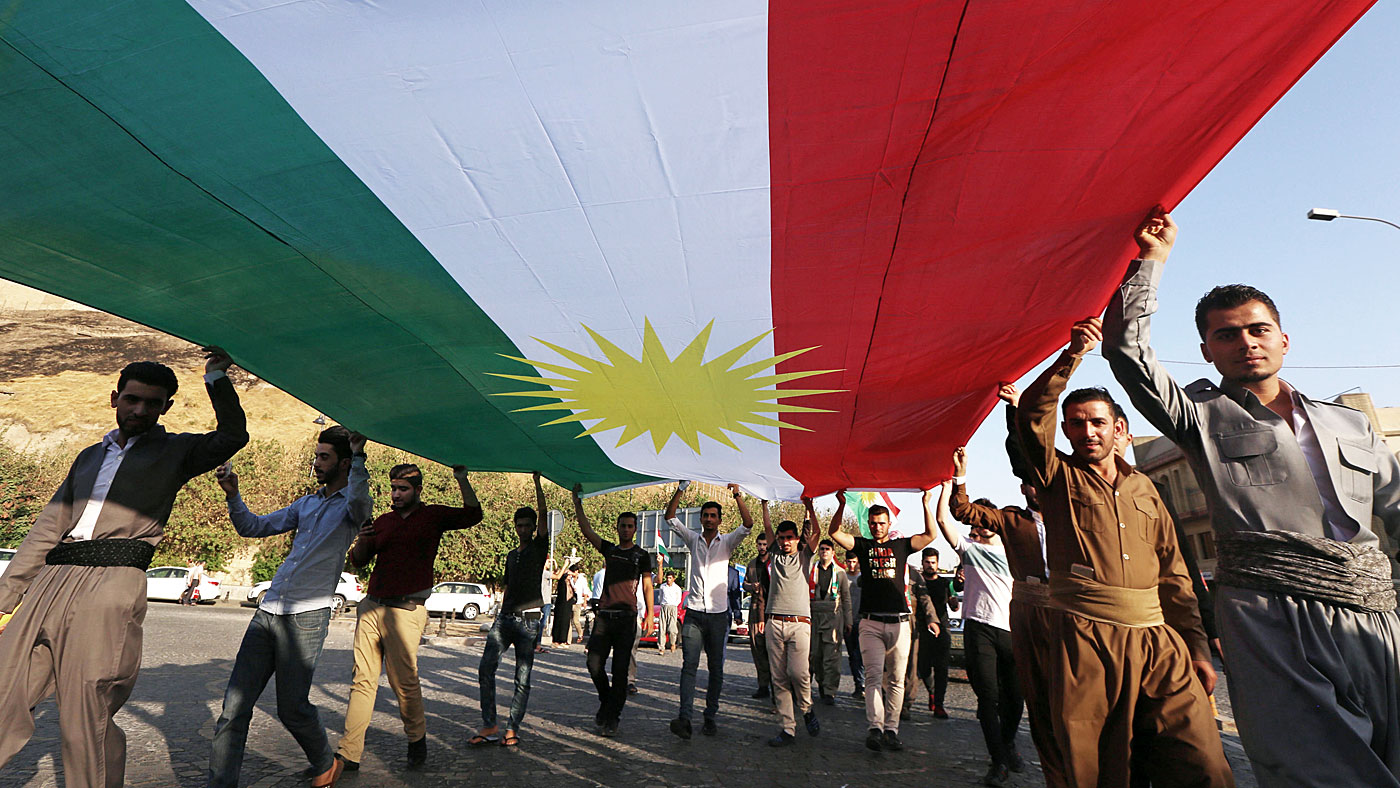Iraqi forces launch major operation after Kurdish independence vote
First use of military might by Baghdad following referendum poses headache for the US

A free daily email with the biggest news stories of the day – and the best features from TheWeek.com
You are now subscribed
Your newsletter sign-up was successful
Iraqi federal forces have moved to enter the disputed oil-rich city of Kirkuk as Iraqi Prime Minister Haider al-Abadi orders his army to “impose security” in the region following the Kurdistan government’s referendum last month.
The army captured several positions south of Kurdish-held Kirkuk, including the North Gas Company station, a nearby processing plant and the area’s industrial district, according to an Iraqi military statement released today. “Forces are continuing to advance,” it said.
The Iraqi military operation is “the first use of military force by the government in Baghdad in response to an independence vote last month by the autonomous Kurdish region in northern Iraq”, says The New York Times.
The Week
Escape your echo chamber. Get the facts behind the news, plus analysis from multiple perspectives.

Sign up for The Week's Free Newsletters
From our morning news briefing to a weekly Good News Newsletter, get the best of The Week delivered directly to your inbox.
From our morning news briefing to a weekly Good News Newsletter, get the best of The Week delivered directly to your inbox.
An Iraqi Kurdish commander, Bahzad Ahmed, said there had been “lots of casualties” during clashes between Iraqi and Kurdish forces, reports Al Jazeera English. Ahmed claimed Iraqi troops had “burnt lots of houses and killed many people” in Toz Khormato and Daquq, south of the disputed city.
The Kurdish forces said they had destroyed at least five Humvees used by Iraqi army.
“Peshmerga [Kurdish fighters] will continue to defend Kurdistan, its people and interests. This was an unprovoked attack following days of Iraqi military deployments to Kurdistan's borders,” said a statement by the Kurdistan Region Security Council (KRSC).
Al Jazeera reporter Charles Stratford said that Kurdish forces in and around Kirkuk “have vowed to defend it to the last man”. He added that the Kurdish governor of Kirkuk has reportedly called residents to arms, “saying anybody with a weapon should take it up and defend the city”.
A free daily email with the biggest news stories of the day – and the best features from TheWeek.com
The conflict is also a serious problem for the US, as “both the Iraqi Army and the peshmerga have been trained and equipped by the United States as part of the American-led coalition battling Islamic State militants in the country”, says The New York Times.
The Kurdish independence vote, in a referendum held on 25 September, “strained relations not only between Kurdish authorities and Baghdad, but between the Kurds and the United States”, adds the paper. The US described the referendum as unnecessary and said it would undermine the fight against Islamic State in the region.
Over the weekend, Kurdish leaders rejected a demand by Baghdad to cancel the outcome of the referendum - in which an overwhelming 92% of voters backed independence - as a precondition for talks to resolve the dispute.
It seems as if “all diplomatic efforts have failed”, says Stratford, calling the push a “very worrying” development.
“Despite repeated denials by the Iraqi army that they were going to move on into the city and retake these oil fields, it seems very much as if that is happening now,” he adds.